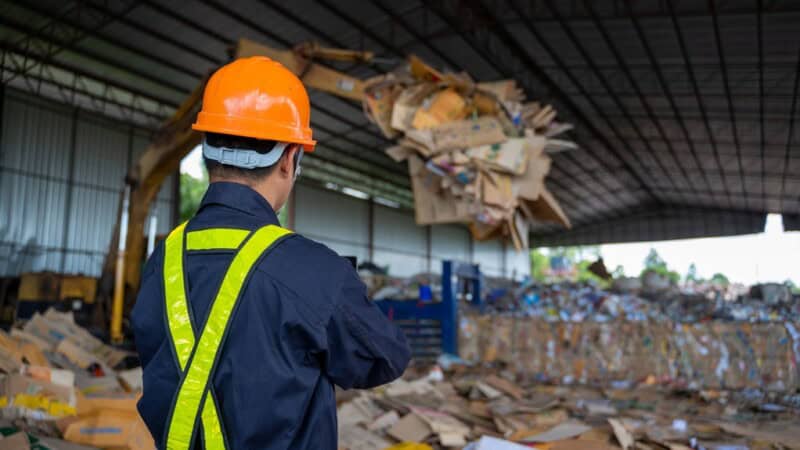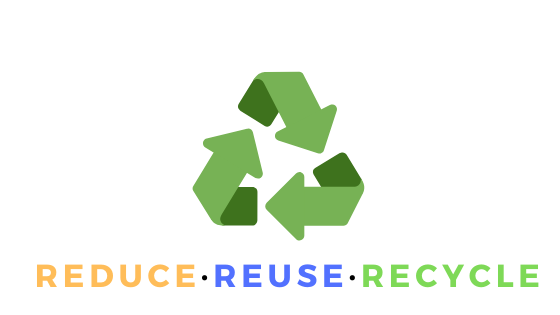Recycled Materials ♲: I am happy to hear that the recycling industry here in Australia is slowly growing. It definitely took a turn for the worse when China implemented its waste ban last 2018. But what needs to be done for us to strengthen our recycling scheme? Let me discuss it with you.
>Download Now: Free PDF Business Owners Guide To Commingled Recycling Bin Services
A bit about Waster
Before we discuss the topic of recycled materials, let me share with you more information about Waster.
We here at Waster provide you with innovative solutions for your and your business’s waste management and recycling needs. Furthermore, we provide flexible, 30-day contracts instead of the typical lock-in contracts, which proves to be better.
Click on the blue button to learn more.
READ: Recycled Toilet Paper Facts 🧻
Marketing recycled materials
I cannot emphasise further the brunt Australia took when China refused to take in the world’s rubbish. As a result, it is still finding its grounds on what to do. Sending it to other Southeast Asian countries definitely did not work. So, what now? What needs to be done?
Fortunately, actions have already been taken to tackle this. The Victorian government recently implemented a new recycling policy that includes a four-bin method by 2030 and a container deposit scheme. But is this enough? Maybe not.
Lingering problems with recycling In Australia
Many of you readers here know what supply and demand are, for sure. For something to be supplied, there must be an equal demand for it. What is the point of producing recycled materials if there is no demand for them? Additionally, there also seems to be a problem with our supply. According to the Conversation, two problems exist with our recycling system today:
- Supply – facilities treating recyclable materials seem to have poor quality. It stems from the design of the products and our poor waste management practices.
- Demand – simply put, there is not enough demand for recycled materials in new products and infrastructures. As a result, the value of the materials, while high quality, is still low.
What to do?
As I have already mentioned above, the Victorian government has already taken steps, albeit just baby steps, in solving our waste crisis. The four-bin collection, although great, is only a part of the equation. Improving the supplying part of it will go to shambles if no one demands the recycled materials. An excerpt from the Conversation blog:
Environmental economists have long pointed out that without government intervention, free markets in most countries will not pay enough or use enough recycled material when new, or “virgin”, materials are so cheap.
But good news, everyone: the four-bin system is not the only good thing in it. The new recycling policy also includes many demand-side initiatives, from market development grants and infrastructure funding to developing what we call a Circular Economy Business Innovation Centre. Additionally, the policy considers waste management a necessary service.
“I would like to see all of the states and the commonwealth agree that by X date, X percentage of their significant procurement programs will be made of recycled materials,” as stated by Trevor Evans in an interview with the Guardian.
Evans, the new waste reduction minister, is the first person to hold the portfolio at a federal level. He said that he would “seek agreement from state and territory environment ministers for the new target at their next meeting, expected before the end of the year”. Additionally, he also mentioned that the procurement target would receive financial support from the commonwealth to support the rapidly increasing recycling industry.
Why we need to buy recycled materials
For all of you young (and maybe a bit uninformed) readers here, you might be wondering why there is a need for us to buy recycled materials. Well, let me discuss it with you. The reason includes:
- To clean up the environment – obviously, this is the number one reason why you should purchase recycled materials instead of raw, virgin ones. This is to divert the recyclable materials from going into a landfill and instead be utilised again by consumers like you and me. See our blog on landfills in Australia.
- To save up on natural resources – the creation of new products from raw materials exhausts the already limited amount of natural resources here on Earth. For example, in today’s world, creating crude steel consumes so many raw materials like iron ore and coal. As a result, efficient use of natural resources is critical for sustainability. Using recycled materials reduces the need for virgin materials, which in turn saves up natural resources.
- To strengthen the recycled materials market – as I have already mentioned, everything I said and will say about recycling is pointless if none – or few – of us purchase recycled materials. Make it a point to buy recycled materials if you can. Some materials like steel tend to retain their quality even after being recycled.
Recycled materials: conclusion
The recycling industry of Australia was in shambles when China declared its waste ban. But we have since then recovered from it through the government starting a policy that provides every Victorian household or business with a consistent kerbside bin system. Additionally, the bins will add one more colour – purple bin – that caters to glass materials.
Two main problems exist with our recycling system, as stated by the Conversation. First, the supply; the quality of materials are poor because of the design of the product and how we manage waste. Second, the demand: there is not enough demand for recycled (and recycled building) materials in the market.
Fortunately, the recycling policy of the Victorian government also addressed the problem regarding the demand for recycled materials.
Waster: things you need to know
If you’re looking for recycling bins, check our waste recycling shop and find the best deals in terms of pricing and services.
Also, please call 1300 WASTER (1300 927 837), or email us at enquiries@waster.com.au if you have any further questions.



